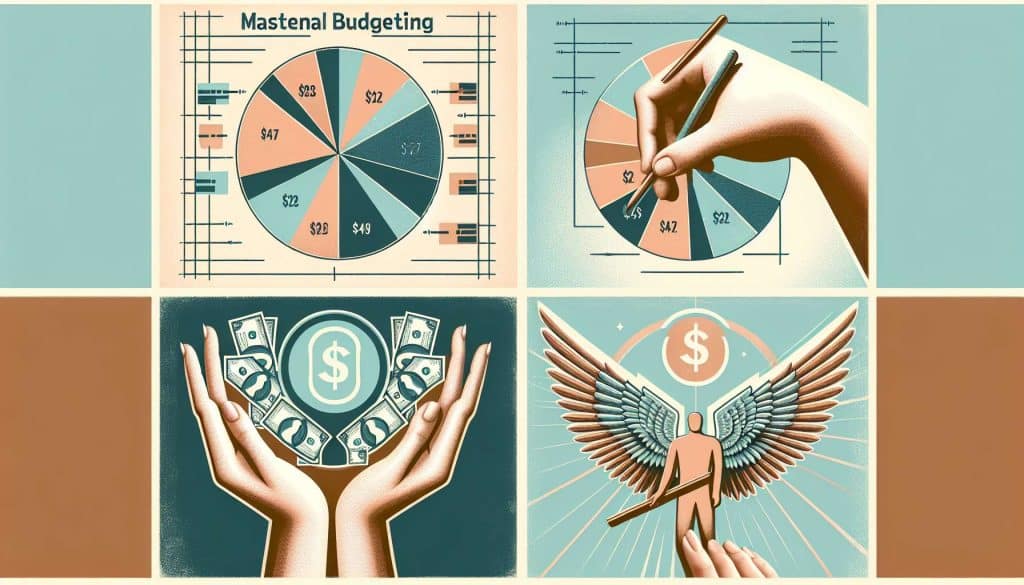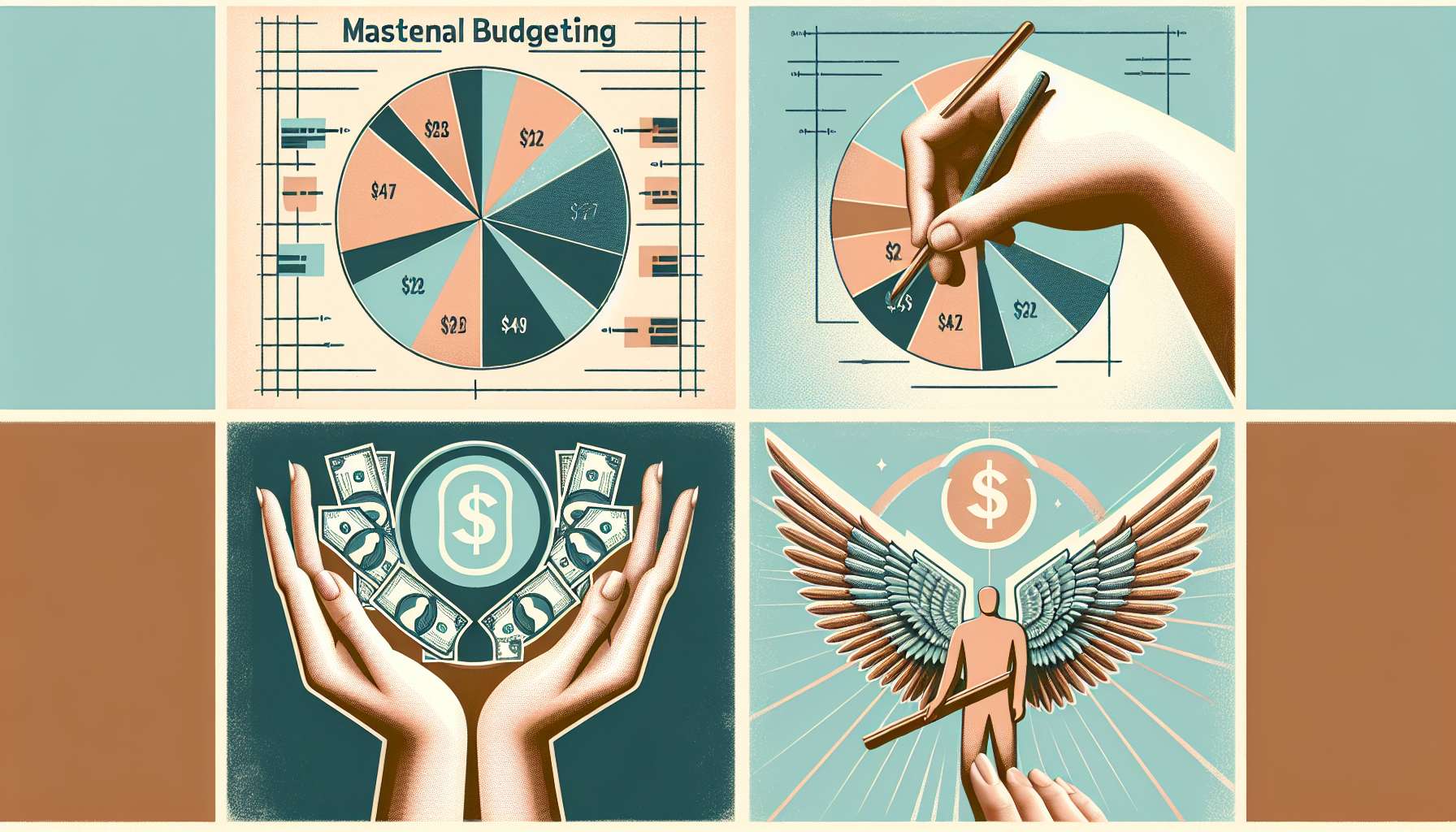Master Your Personal Budget: Strategies for Financial Freedom


**Empowering Your Finances: Mastering Personal Budgeting**
Anúncios
In the hustle and bustle of today’s world, managing personal finances is more crucial than ever. Figuring out a budget can be overwhelming for many, yet it remains the key to unlocking financial independence. Whether your aim is to save for a future purchase, pay down debt, or stay afloat, mastering personal budgeting is essential. This article seeks to break down the complexities of budgeting and provide actionable strategies for financial control.
Managing money involves tracking income, managing expenditure, and building a framework for financial decision-making. A proper budget prevents unnecessary debt and guides you toward long-term and short-term financial aims. Financial stability can alleviate stress, making life more enjoyable. The significance of personal budgeting cannot be understated—it’s an effective tool that empowers individuals to take charge of their financial destiny.
Getting started requires acknowledging your financial goals—this forms the foundation of your budgeting strategy. These objectives might be short-term, like financing a vacation, or long-term, like saving for retirement. Organizing your priorities enables you to focus efforts efficiently. By outlining these goals, you can craft a budget that genuinely reflects your ambitions, providing motivation and direction along the way.
Overview of Personal Budgeting
A practical budget includes detailed tracking and informed planning. Initially, monitor your monthly income and expenditures, noting every transaction without exception. Break down spending into categorically arranged sectors such as housing, food, transport, and leisure. Furthermore, setting precise spending limits per category based on income will enhance your understanding of money use. This creates a balanced approach toward spending and saving.
Implementing the budget is where theory meets practice. Adhering to the set spending limits and regular oversight of expenses is crucial in maintaining financial discipline. Adjustments will be necessary when unexpected life changes occur, like job transitions or meeting financial targets. Regular review and recalibration of your budget will ensure it remains relevant to your present needs and circumstances.
Avoid common pitfalls, such as making overly complex budgets that discourage use, ignoring irregular expenses, failing to set up an emergency fund, and setting unrealistic limits. Simplicity can often be the key to consistent budgeting. It should evolve with your financial journey, becoming more comprehensive as you become more confident in managing your finances.
Characteristics of a Personal Budget
- Expense Tracking: Noting all income and expenditure transparently.
- Expense Categorization: Sorting expenses into easily understood categories.
- Personalization: Tailoring the budget to fit personal financial goals and lifestyle.
- Flexibility: Adapting as financial situations and priorities shift.
- Comprehensiveness: Addressing both day-to-day spending and long-term financial planning.
Benefits of Personal Financial Budgeting
Utilizing a budget offers numerous advantages, including better financial organization, alleviated stress, and more focused financial goals. By establishing clear policies for spending and saving, one can manage resources more effectively, minimizing waste and maximizing savings. Ultimately, mastering a budget enables greater financial independence and empowerment.
Many individuals experience reduced stress associated with financial uncertainties when budgeting properly. The security of knowing where your money goes and having a contingency for emergencies dramatically influences peace of mind. Moreover, tailored budgets accommodate personal spending philosophies while guiding efficient resource allocation, encouraging balance between savings and expenditure.
Budgets also pave the way for accomplishing financial objectives by providing a structured approach to savings and investment planning. Whether you plan to buy a home or prepare for retirement, disciplined budgeting aligns efforts with intentions. This approach facilitates achieving desired outcomes with more profound accuracy and less friction.
Incorporating technology simplifies the budgeting process. Numerous applications and financial tools offer user-friendly interfaces that streamline tracking and adjustment. Such services as Mint or YNAB provide insights and reminders that simplify financial management, making it accessible to novices and veterans alike.
To stay motivated, celebrating minor achievements boosts morale. Recognizing progress fosters positive reinforcement, enabling continued commitment to the budgeting process. Similarly, sharing budgeting goals with peers or family provides accountability and enhances dedication to financial growth. These practices encourage persistence on the path to financial mastery.
Mastering financial management through budgeting is essential for achieving autonomy. Comprehending your financial circumstances and setting appropriate limits are fundamental steps toward success. With perseverance and the right tools, personal budgeting becomes not only manageable but rewarding. Armed with newfound knowledge, you have the power to steer your financial journey toward a promising future.
- Enhanced Financial Awareness: Understanding your financial health thoroughly.
- Stress Reduction: Security in financial preparedness.
- Goal Alignment: Aligning actions with personal life and financial objectives.
- Improved Decision Making: Making informed choices about spending and savings.
- Financial Independence: Building a future that is financially secure.





